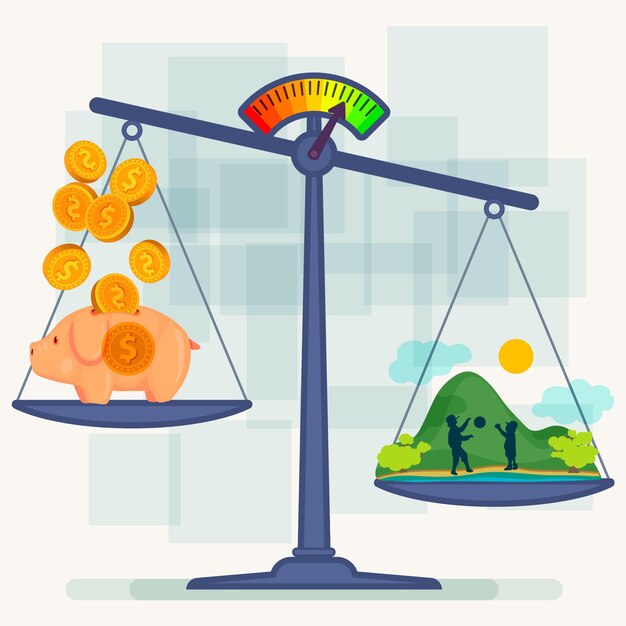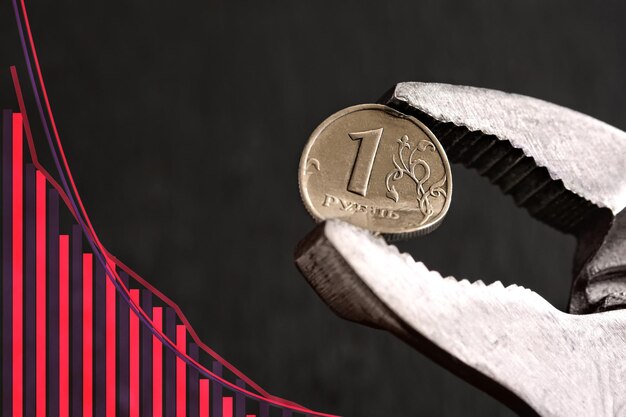Crypto Wallet vs Crypto Exchange – Choosing the Best Option for Your Cryptocurrency Assets
When it comes to navigating the vast world of cryptocurrencies, one of the key decisions to make is how to effectively manage these digital assets. Whether you are a seasoned crypto enthusiast or just dipping your toes into the decentralized realm, understanding the difference between a wallet and an exchange is essential.
Imagine having complete control over your crypto holdings, with the ability to securely store and access them at your convenience. Picture a fortress-like vault, where your digital wealth is safeguarded against any potential threats. This is where the concept of a wallet enters the scene. A wallet, in the realm of cryptocurrencies, is akin to your personal safe, where you can store and manage your digital coins and tokens.
On the other side of the spectrum, an exchange serves as a bustling marketplace, brimming with endless possibilities. Like a busy stock exchange floor, crypto exchanges offer a platform for buying, selling, and trading various digital currencies at dynamic prices. They provide an avenue to explore the vast array of cryptocurrencies available, allowing users to take advantage of the ever-changing market trends.
While a wallet and an exchange both have their merits, it is crucial to understand the nuances of each to decide which option aligns best with your needs. Are you more inclined towards securing your cryptocurrencies in a wallet, which emphasizes control and ownership? Or do you prefer the dynamic world of trading, where an exchange opens the door to potential profits? The answer lies in understanding the distinct features, advantages, and potential drawbacks of both alternatives.
In the Battle of Digital Assets: Crypto Wallets vs Crypto Exchanges
When it comes to managing cryptocurrencies, individuals are faced with the dilemma of choosing between utilizing a digital wallet or relying on an exchange platform. The decision ultimately depends on various factors such as convenience, security, and personal preferences. Understanding the key differences between wallets and exchanges can help determine which option is better suited for managing your valuable digital assets.
Securing Your Cryptocurrencies with Wallets
One option for managing cryptocurrencies is utilizing a digital wallet. Similar to a physical wallet, a digital wallet provides a secure and private space to store various types of cryptocurrencies. These wallets can be either software-based or hardware-based, and they allow individuals to have complete control over their private keys and funds. With a wallet, you become the sole custodian of your digital assets, ensuring that you have direct ownership and access at all times.
Exchanges: Convenience at a Cost
On the other hand, exchanges offer a convenient platform for buying, selling, and trading cryptocurrencies. Through an exchange, users can easily convert between different digital assets and access a wide range of trading pairs. Exchanges usually provide a user-friendly interface and additional features such as charts and order books. However, it is important to note that exchanges function as centralized third parties, holding your funds on your behalf. This introduces an element of risk, as exchanges can be vulnerable to hacking or other security breaches.
Ultimately, choosing between a wallet and an exchange relies on balancing security and convenience. If you prioritize full control over your digital assets and are willing to take responsibility for their security, a wallet can be the better option. On the other hand, if you value convenience and flexibility in accessing different cryptocurrencies and trading pairs, an exchange may be the preferred choice. It is crucial to conduct thorough research and consider your specific needs before making a decision. Whether you opt for a wallet or an exchange, always remember to implement strong security practices and stay vigilant in safeguarding your valuable cryptocurrencies.
Understanding Wallets and Exchanges
The Role of Wallets
When it comes to cryptocurrencies, a wallet can be compared to a personal vault or a digital safe. It is a secure virtual space where individuals can store, monitor, and access their digital assets. A wallet not only holds the keys to your cryptocurrencies but also provides a user-friendly interface for managing transactions and ensuring the security of your holdings. It is like having a portable bank account that allows you to send and receive cryptocurrencies at your convenience. In addition to supporting multiple cryptocurrencies, wallets can come in various forms, such as software wallets that are stored on your computer or mobile devices, or hardware wallets that provide an extra layer of security by being offline.
The Importance of Exchanges
While wallets focus on the individual’s control and security over their cryptocurrencies, exchanges are platforms that facilitate the buying, selling, and trading of digital assets. An exchange acts as a marketplace where users can interact with other individuals or entities to exchange their cryptocurrencies. It offers liquidity, ensuring that users can easily convert their digital assets into other cryptocurrencies or traditional fiat currencies. Exchanges vary in terms of their features, user interface, and security measures. Some exchanges are centralized, meaning they are operated by a central authority, while others are decentralized and operate on a peer-to-peer basis.
Understanding the differences and functionalities of wallets and exchanges is crucial for individuals entering the world of cryptocurrencies. By comprehending the role of wallets – as the secure storage and management tool – and exchanges – as the platform for buying, selling, and trading – cryptocurrency enthusiasts can make informed decisions based on their specific needs and goals. The choice between a wallet and an exchange ultimately depends on an individual’s preference and the level of control they desire over their digital assets.
Security Measures: Wallets vs Exchanges
When it comes to safeguarding your digital assets, it is crucial to understand the security measures provided by both wallets and exchanges. By exploring the security aspects of these two options for managing cryptocurrencies, individuals can make informed decisions to protect their valuable holdings.
Protecting Your Digital Wealth
Ensuring the security of your digital wealth is of utmost importance, given the increasing prevalence of cyber threats and hacking attempts. Wallets and exchanges tackle this challenge by implementing various security measures to safeguard your cryptocurrencies.
Wallet Security Measures
Wallets, also known as digital wallets or cryptocurrency wallets, prioritize the security of your funds by employing a range of protective measures. Encrypted private keys, for example, provide an additional layer of security by requiring a unique password or PIN for access to your wallet.
In addition, many wallets offer offline storage options, known as cold storage, to mitigate the risks presented by online threats. By keeping your digital assets offline, wallets protect them from potential cyber attacks or unauthorized access.
Exchange Security Measures
Exchanges, on the other hand, employ various security measures to safeguard your cryptocurrencies while providing a platform for trading and exchanging digital assets. These measures often include two-factor authentication (2FA), which adds an extra layer of protection by requiring both a password and a unique code from a mobile device.
Furthermore, reputable exchanges invest in robust security frameworks to protect user data and funds. This may involve utilizing advanced encryption technology, employing secure socket layer (SSL) certificates, and implementing regular security audits to identify and address potential vulnerabilities.
The Importance of Due Diligence
While both wallets and exchanges strive to implement robust security measures, it is essential for individuals to conduct thorough research and exercise due diligence when choosing a provider. Reading reviews, checking for regulatory compliance, and assessing the reputation of the wallet or exchange are crucial steps to ensure the safety of your cryptocurrency holdings.
In conclusion, when considering the security measures provided by wallets and exchanges, individuals must evaluate factors such as encrypted private keys, cold storage, two-factor authentication, and overall security protocols. By investigating these elements and exercising due diligence, individuals can make an informed decision on the best option for managing their cryptocurrencies.
Convenience and Accessibility: Wallets vs Exchanges
In the realm of managing cryptocurrency, the key considerations revolve around the ease and availability of handling digital assets. When comparing wallets and exchanges, it is crucial to analyze their convenience and accessibility, focusing on factors that enable effortless transactions and seamless interactions within the cryptocurrency ecosystem.
Convenience: One of the primary aspects to evaluate when it comes to managing cryptocurrency is the level of convenience offered by wallets and exchanges. Wallets, serving as personal storage platforms, provide individuals with a simple and user-friendly way to hold and access their digital assets. Exchanges, on the other hand, offer a more elaborate infrastructure by acting as intermediaries between buyers and sellers, streamlining the process of trading various cryptocurrencies. It is important to consider which option aligns better with your personal preferences and trading habits.
Accessibility: Accessibility plays a vital role in determining how easily cryptocurrencies can be utilized for everyday transactions and investment purposes. Wallets, typically installed on smartphones or computers, provide direct access to personal funds, allowing users to manage their cryptocurrency holdings independently. This self-sufficiency grants users the freedom to transact with their digital assets whenever and wherever they choose. On the contrary, exchanges often require users to create accounts, undergo verification procedures, and sometimes face limitations when it comes to accessing funds. Understanding these differences is crucial in identifying the platform that best suits your accessibility needs.
Overall, when deciding between wallets and exchanges for managing cryptocurrency, evaluating convenience and accessibility becomes paramount. While wallets offer a simple and personalized approach for storage and access, exchanges provide a more comprehensive system that caters to trading needs. By carefully considering these factors, individuals can make informed decisions based on their specific preferences and requirements.
Transaction Fees: Wallets vs Exchanges
When it comes to managing your cryptocurrency, one important aspect to consider is the transaction fees associated with using wallets and exchanges. These fees play a crucial role in determining the overall cost and convenience of your cryptocurrency transactions.
Transaction fees can vary significantly between wallets and exchanges. While both options involve fees for processing transactions, the specific fee structures and rates differ. It is essential to understand these differences to make an informed decision and optimize your cryptocurrency management experience.
Wallets often offer the advantage of lower transaction fees compared to exchanges. This is because wallets are designed for individual users who want to securely store and transact with their cryptocurrencies. As a result, wallet transaction fees tend to be more transparent and straightforward, allowing users to track their costs more efficiently.
On the other hand, exchanges generally charge higher transaction fees due to the additional services they provide, such as trading and liquidity. Exchanges act as intermediaries and facilitate transactions between buyers and sellers, which requires more infrastructure and resources. While these additional services can be convenient for active traders, they often come with higher fees.
It is important to note that transaction fees should not be the sole determining factor when choosing between wallets and exchanges. Other factors, such as security, user-friendliness, and available features, should also be considered. Understanding the transaction fee dynamics is just one aspect of evaluating the overall value and convenience of managing your cryptocurrency.
In conclusion, transaction fees differ between wallets and exchanges, with wallets generally offering lower fees and exchanges having higher fees due to additional services. To make an informed decision, it is crucial to consider other factors alongside transaction fees to ensure the best option for managing your cryptocurrency based on your individual needs and preferences.
Controlling Your Own Keys: Wallets vs Exchanges
When it comes to managing your cryptocurrency, one crucial aspect to consider is the control you have over your private keys. The way you control and access these keys can significantly impact the security and ownership of your digital assets. In this section, we will explore the fundamental differences between wallets and exchanges in terms of key control, highlighting the advantages and disadvantages of each option.
- Wallets: With wallets, you have complete control over your private keys. This means that you are the sole owner and keeper of your keys, allowing you to have full autonomy and responsibility for your cryptocurrency. Wallets provide you with the freedom to store and manage your keys offline, reducing the risk of online attacks and hacks. They come in various forms such as hardware wallets, software wallets, and even paper wallets.
- Exchanges: On the other hand, when you use an exchange to manage your cryptocurrency, you typically do not have control over your private keys. Instead, the exchange acts as a custodian and holds your keys on your behalf. While exchanges offer convenience and ease of use, especially for trading purposes, this lack of control exposes you to potential risks. If the exchange is hacked or goes out of business, there is a possibility of losing your funds.
It is essential to understand that controlling your own keys through wallets gives you a higher level of security and ownership over your cryptocurrency. By having exclusive access to your private keys, you ensure that no third-party can manipulate or compromise your assets. However, this increased control also demands greater responsibility in safeguarding your keys and ensuring their proper management.
In conclusion, while exchanges may offer convenience, wallets provide a secure means of controlling your own keys. Deciding between the two options depends on your priority for security, convenience, and the level of control you wish to have over your cryptocurrency. It is advisable to assess your needs and preferences before making a decision to ensure the optimal management of your digital assets.
Factors to Consider When Choosing Between a Wallet and an Exchange
Several key considerations should be kept in mind when deciding between a cryptocurrency wallet and an exchange. Making the right choice is essential to effectively manage and secure your digital assets. Here, we will explore the various factors that should be taken into account before making a decision.
Security
One of the most important factors to consider is security. Both wallets and exchanges offer different levels of security for your cryptocurrency. While wallets provide you with complete control over your funds and private keys, exchanges may offer additional security measures such as two-factor authentication and cold storage. It is crucial to assess the security protocols of both options and choose the one that best aligns with your risk tolerance.
Accessibility
Another critical aspect to consider is accessibility. Wallets typically provide offline storage options, allowing you to access your cryptocurrency at any time without relying on an internet connection. On the other hand, exchanges often offer mobile apps and online platforms, making it easier to manage your funds on the go. Consider your preferences and lifestyle to determine which option provides the accessibility you require.
Supported Cryptocurrencies
The range of cryptocurrencies supported by wallets and exchanges is an essential factor to consider. Some wallets may only support a limited number of cryptocurrencies, while exchanges tend to have a broader selection. If you have specific digital assets in mind, ensure that the chosen option supports them to avoid any inconveniences.
Transaction Fees
Transaction fees can vary significantly between wallets and exchanges. Wallets may charge fees for sending or receiving transactions, depending on the blockchain network being used. On the other hand, exchanges typically charge trading fees and withdrawal fees. It is essential to compare and evaluate the fee structures of both options to avoid any unexpected costs.
User Experience
The user experience offered by wallets and exchanges also plays a significant role in the decision-making process. Wallets often provide a straightforward interface with basic features, focusing on security and simplicity. Exchanges, on the other hand, may offer a more comprehensive platform with advanced trading options. Consider your level of experience and the features you value most to choose the option that suits your needs.
Conclusion
Choosing between a wallet and an exchange requires careful consideration of various factors. By assessing the level of security, accessibility, supported cryptocurrencies, transaction fees, and user experience, you can make an informed decision that aligns with your goals and preferences. Remember, there is no one-size-fits-all answer – what works best for one person may not be suitable for another. Take the time to evaluate your options and choose wisely to manage your cryptocurrency effectively.
Questions and answers: Wallet vs exchange
What is the difference between a wallet and an exchange for managing cryptocurrency?
A wallet is a digital storage for storing and managing your cryptocurrency securely, while an exchange is a platform where you can buy, sell, and trade various cryptocurrencies.
Which is safer, using a wallet or an exchange?
Using a wallet is generally considered safer than an exchange because you have full control over your private keys and funds. Exchanges, on the other hand, are more susceptible to hacking and other security breaches.
Can I store all types of cryptocurrencies in a wallet?
Most wallets support a wide range of popular cryptocurrencies, but it’s important to check compatibility before choosing a specific wallet. Some wallets may only support specific cryptocurrencies.
Are there any advantages to using an exchange instead of a wallet?
Yes, using an exchange allows you to easily and quickly trade between different cryptocurrencies and also provides access to advanced trading features and tools. Additionally, exchanges often have a user-friendly interface for managing your funds.
Can I use both a wallet and an exchange together?
Absolutely! Many cryptocurrency users utilize both a wallet and an exchange. They store their long-term holdings in a wallet for security and use an exchange for active trading or purchasing new cryptocurrencies.
What is the difference between a crypto wallet and a crypto exchange?
A cryptocurrency wallet is a digital wallet that stores your private and public keys, allowing you to securely receive, store, and send cryptocurrencies. On the other hand, a cryptocurrency exchange is a platform where you can buy, sell, and trade cryptocurrencies with other users.
Which option offers better security – a crypto wallet or a crypto exchange?
A crypto wallet generally offers better security as it allows you to have full control over your private keys. With a wallet, you are the sole custodian of your keys, reducing the risk of hacks or theft. In contrast, exchanges can be susceptible to security breaches, so it is recommended to store your cryptocurrencies in a wallet.
What distinguishes a centralized exchange from a decentralized exchange?
A centralized exchange is operated by a single entity, where users trade cryptocurrencies through a centralized platform, while a decentralized exchange operates on a blockchain network, allowing peer-to-peer trading without the need for intermediaries.
How does a mobile wallet differ from other types of crypto wallets?
A mobile wallet is a type of crypto wallet that is accessible through a mobile device, offering convenience and accessibility for users to store, send, and receive cryptocurrencies on the go.
What is the significance of a non-custodial wallet in the cryptocurrency space?
A non-custodial wallet gives users full control over their crypto assets and private keys, allowing them to manage their funds independently without relying on a third-party service to store or access their cryptocurrencies.
Can you explain the difference between a custodial wallet and a non-custodial wallet?
A custodial wallet is a type of crypto wallet where a third-party service holds and manages users’ crypto assets on their behalf, while a non-custodial wallet allows users to maintain control of their funds and private keys.
How do users store crypto assets on a centralized exchange?
On a centralized exchange like Coinbase, users store their crypto assets within their exchange accounts, where the exchange acts as the custodian of their funds until they decide to withdraw them to an external wallet.
What are some common types of wallets used to store Bitcoin and other cryptocurrencies?
Common types of wallets include hardware wallets, software wallets (such as desktop, mobile, and web wallets), paper wallets, and brain wallets, each offering varying levels of security and accessibility.
What role does Coinbase play in the crypto wallet and exchange space?
Coinbase is a popular cryptocurrency exchange and wallet service that allows users to buy, sell, and store a variety of cryptocurrencies, including Bitcoin, Ethereum, and many others, through its platform.
How do cold wallets differ from other types of crypto wallets?
Cold wallets, also known as cold storage wallets, are offline storage solutions for cryptocurrencies, providing enhanced security by keeping private keys offline and protected from online threats such as hacking or malware.
What factors should individuals consider when choosing a crypto wallet?
When choosing a crypto wallet, individuals should consider factors such as security features, ease of use, compatibility with different cryptocurrencies, customer support, and whether they prefer a custodial or non-custodial solution.
How do users typically trade crypto assets on exchanges like Coinbase?
Users trade crypto assets on exchanges like Coinbase by creating an account, depositing funds into their exchange wallet, selecting the desired cryptocurrency pair to trade, and executing buy or sell orders through the exchange’s trading interface.
What is the difference between a crypto wallet and a crypto exchange?
A crypto wallet is a digital tool used to store, send, and receive cryptocurrencies, while a crypto exchange is a platform where users can buy, sell, and trade cryptocurrencies.
How does a non-custodial crypto wallet differ from a custodial exchange wallet?
A non-custodial crypto wallet allows users to maintain control of their private keys offline, while a custodial exchange wallet stores users’ crypto assets on the exchange’s servers, with the exchange acting as the custodian.
What are the different types of crypto wallets available in the crypto space?
Different types of crypto wallets include hardware wallets, software wallets (such as desktop, mobile, and web wallets), paper wallets, and brain wallets, each offering varying levels of security and accessibility.
What is the meaning of the term “crypto wallet”?
A crypto wallet is a digital tool used to securely store, manage, and interact with cryptocurrencies, enabling users to send, receive, and manage their crypto assets.
How does a mobile crypto wallet differ from other types of crypto wallets?
A mobile crypto wallet is a type of software wallet that is accessible through a mobile device, offering convenience and accessibility for users to manage their crypto assets on the go.
Can you explain the process of sending crypto from an exchange to a self-custody wallet?
To send crypto from an exchange to a self-custody wallet, users typically generate a receiving address on their wallet, then initiate a withdrawal transaction on the exchange, specifying the wallet address as the destination.
What factors should individuals consider when choosing a wallet to keep their crypto assets?
When choosing a wallet to keep crypto assets, individuals should consider factors such as security features, ease of use, compatibility with different cryptocurrencies, and whether they prefer a custodial or non-custodial solution.
How do crypto exchanges facilitate crypto transactions for users?
Crypto exchanges facilitate crypto transactions by providing trading platforms where users can place buy and sell orders for various cryptocurrencies, with the exchange matching buyers and sellers to execute trades.
What is the significance of understanding cryptocurrency wallets in the crypto industry?
Understanding cryptocurrency wallets is essential for crypto users to effectively manage their assets, protect their private keys, and navigate the complexities of storing and transferring cryptocurrencies securely.
Why is using a secure wallet important for holding crypto assets?
Using a secure wallet is important for holding crypto assets to prevent unauthorized access, protect against hacking or theft, and ensure the safety and integrity of users’ crypto holdings.








No responses yet